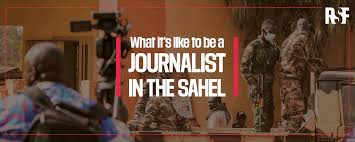
As UNESCO commemorates World Press Freedom Day on 3 May, media watchdog group Reporters Without Borders (RSF) has warned of the growing violence by political actors and intensification of attacks by armed groups against journalists in Africa.
Government support for press freedom has declined globally, said the RSF, as it unveiled its 2024 World Press Freedom Index on Friday (3 May). Of the five indicators that the media watchdog used to compile its annual world rankings, the political indicator has been the most problematic, showing the high degree to which politicians across a wide range of countries were targeting the media. The most challenging region remained the Middle East and North Africa, where the situation was “very serious” in nearly half the countries. On the African continent, Eritrea ended up at the bottom of the list, taking over from last year’s lowest-ranked country, North Korea.
In Sahel, the junta-ruled Mali, Burkina Faso and Niger have been turned into “information deserts”, observers warned, as journalists and reporters have seen their working conditions deteriorate and with over a dozen media outlets forced to suspend or close their operations.
The RSF’s 2023 report stressed how increasingly difficult it is for journalists to cover freely because they are caught between violence from jihadists and armed groups on the one hand, and restrictions, pressure, media suspensions and expulsions of foreign correspondents by the authorities on the other. However, it is the war in Gaza that has become the deadliest conflict for journalists, with more than 100 journalists and media workers, the vast majority Palestinian, having been killed in the first seven months of the conflict, according to the Committee to Protect Journalists (CPJ) and the International Federation of Journalists (IFJ).
